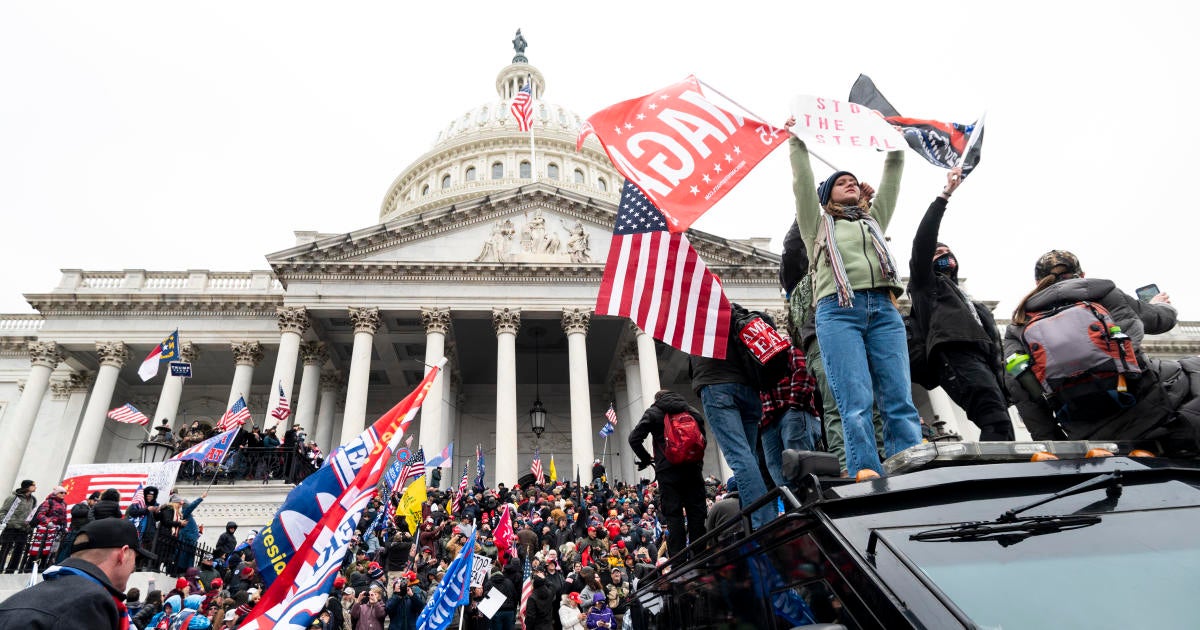The upcoming Congress meeting on Monday to count the Electoral College votes and affirm President-elect Donald Trump’s victory in the 2024 election is overshadowed by the lingering aftermath of the Capitol riot that occurred four years ago. Approximately 1,500 individuals who were implicated in storming the Capitol are anxiously waiting to see if Trump will fulfill his promise to pardon or commute their sentences.
The Justice Department’s investigation into the Capitol riot has resulted in charges against more than 1,580 defendants, with over 170 accused of using deadly weapons against officers. While most faced nonviolent misdemeanor charges, some were involved in violent acts aimed at obstructing the peaceful transfer of power. More than 1,000 defendants have pleaded guilty, and around 220 have been convicted at trial, with federal investigators still on the lookout for five fugitives.
Despite the legal proceedings, Trump’s statements about pardoning some defendants and halting the investigation have raised hopes among those who breached the Capitol. The prospect of having their convictions overturned and records expunged is a significant concern for many involved in the riot.
Trump’s inclination to grant pardons to the defendants immediately upon his inauguration has sparked debate, as he also expressed reservations about pardoning individuals who went “out of control” during the riot. The power to pardon federal crimes lies solely with the President, and Trump’s potential pardons could have far-reaching consequences for the Capitol riot cases.
President Biden’s recent pardons and commutations for over 1,500 individuals convicted of nonviolent crimes have added to the debate surrounding the Capitol riot defendants. While presidents typically consult with the Justice Department’s pardon attorney for clemency requests, Trump’s transition team has not disclosed how they plan to handle the review of pardons for the Jan. 6 defendants.
The appointment of Pam Bondi as attorney general and Kash Patel as FBI director by Trump could potentially impact the Capitol breach investigations and the administration’s clemency strategy. The uncertainty surrounding Trump’s pardon decisions has led to defendants seeking delays in their cases, hoping for relief once the new administration takes office.
The severity of the charges against some Capitol riot defendants, including members of extremist groups like the Proud Boys and Oath Keepers, has raised questions about the fairness of the legal proceedings. Sentences ranging from 18 to 22 years for seditious conspiracy have been handed down, with defense attorneys advocating for pardons based on what they perceive as excessive charges.
As the legal battles continue, concerns about the potential impact of pardons on the justice system and the victims of the Capitol riot persist. Federal judges overseeing the cases have condemned the violence and warned of future unrest, emphasizing the importance of upholding the rule of law in the face of challenges to the legal process.
The uncertainty surrounding the future of the Capitol riot investigations, coupled with the possibility of pardons, has created a complex legal landscape. Advocates for the defendants argue that pardons are necessary to rectify perceived injustices, while critics warn of the implications of erasing convictions related to a violent attack on the nation’s Capitol.
The upcoming decisions on pardons and clemency for the Capitol riot defendants will have far-reaching consequences for the justice system and the rule of law. As the legal battles unfold, the nation waits to see how the aftermath of the Capitol riot will shape the future of the judicial system and the accountability of those involved in the violent attack.









